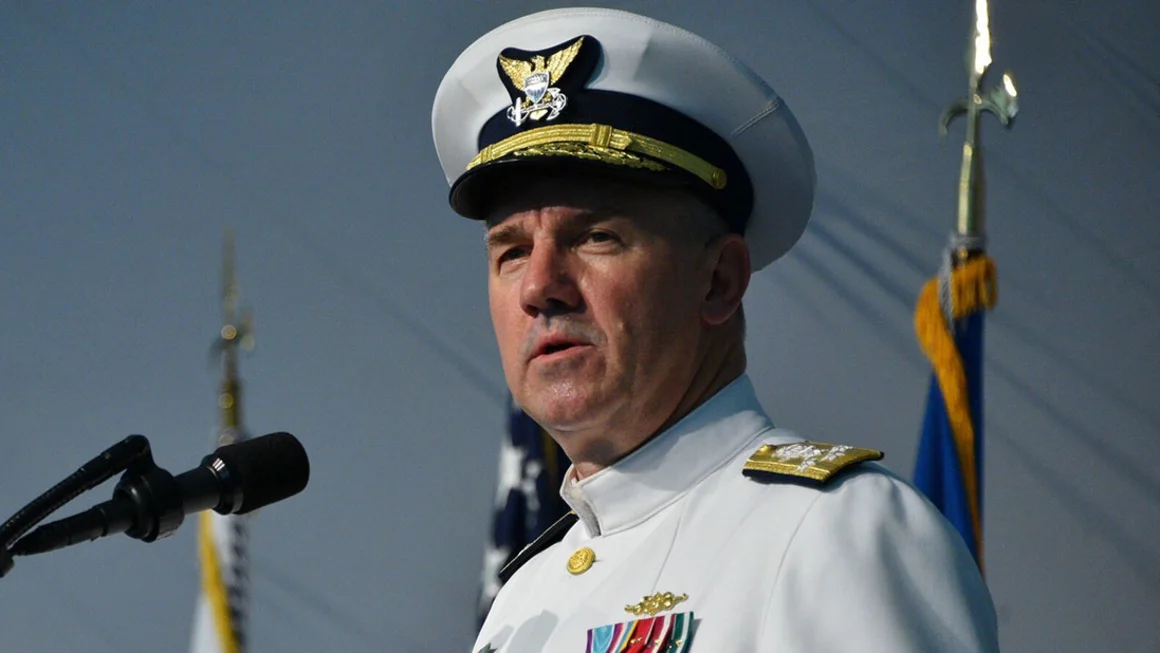
The former leader of the US Coast Guard who withheld from Congress the explosive findings of an investigation that documented years of sexual assaults at the agency’s prestigious academy said he did so because he worried lawmakers wouldn’t protect the privacy of the victims.
“I made my decision, and I stand by that,” former Commandant Karl Schultz said in an exclusive interview with CNN. “There are people who feel wronged by that, and I truly in my heart feel terrible about that. But I don’t think that changes my calculus.”
Schultz, who has become a lightning rod for criticism over his handling of the matter, disputed that he was trying to cover up the investigation known as “Operation Fouled Anchor.” That secret investigation, which was revealed by CNN, substantiated dozens of rapes and assault allegations from the late 1980s to 2006 that had been botched by Coast Guard officials at the time. A internal report on the probe was finalized in 2020 and concluded that the academy’s leadership had been more concerned about the school’s reputation than victims’ wellbeing and found that some perpetrators continued to thrive within the service.
The report was not released to Congress or the public.
In his first public statements since the scandal broke, Schultz said he knew if he had presented the findings to Congress, lawmakers would have seen it as a political opportunity. He said the way Congress is responding now is evidence he was right.
“I knew they would see it as, ‘Here’s the scandal and that they would blow it up,’” said Schultz, who retired in 2022. In his view, lawmakers would have pressed for more information, which ultimately would have been leaked publicly and harmed the victims and some alleged perpetrators who had been exonerated by the investigation. Providing them an overview of the findings, he said, “wouldn’t have been the end of it.”
He also said he did not believe he was under any legal obligation to share the findings with Congress, noting that the agency would not typically brief lawmakers on criminal cases. He had already implemented a number of sexual assault related reforms, he told CNN, including to improve investigations and better support victims.
Schultz said he felt compelled to tell his side of the story following a memo that was released Thursday from majority staff from the House Oversight Committee which is undertaking one of several ongoing government probes examining the Coast Guard’s handling of sexual assaults. That memo casts the committee’s interview with Schulz in starkly different terms. The committee suggested Schultz acknowledged “missing an opportunity for transparency” and wished he could have a “mulligan.”
Schultz said those comments were taken out of context. He said he was referring to his second-guessing over whether he should have personally reached out to assault survivors to apologize for what they had experienced and explain his decision making. “When I reflect back, I’ve asked myself should I have possibly picked up the phone and called the victims,” he said.
A House Oversight Committee aide said in a statement that Schultz’s “excuses… do not hold merit.”
“The U.S. Coast Guard had a duty to inform Congress about misconduct at the academy, and it failed to do so,” the aide said Friday. “Admiral Schultz does not have the authority to decide what information Congress should receive.”
Schultz said he sees that some good has come from the report coming to light, but said he believes some victims have been inadvertently identified by the information released to Congress, backing up his original concerns.
While Schultz said he based his actions on concern for victims’ wellbeing, many assault survivors from within the service have told CNN their lives were turned upside down when they were asked to recount the trauma they endured as part of the Fouled Anchor investigation, only to be forgotten once again when the investigation was quietly closed without any public acknowledgment.
Lawmakers from across the aisle meanwhile have argued there is no question the report should have been shared with them. They have characterized the Coast Guard’s handling of the scandal as a premeditated effort to avoid further scrutiny.
Congress members have also criticized the agency’s current leader, Admiral Linda Fagan, for continuing to fight against greater transparency. In the same report that characterizes Schultz’s interview with investigators, lawmakers said many critical records are still being withheld, which “suggests a broader and continued effort to avoid accountability, putting service members at risk.”
The Coast Guard said in a statement that it has been fully cooperating with the investigation and has turned over more than 75,000 documents in response to various committee requests.
One of the main goals of the current congressional investigations is understanding how they were kept in the dark about Fouled Anchor for so long.
Schultz’s predecessor, Admiral Paul Zukunft, previously told CNN he had planned to brief Congress and to issue a public apology to the victims the investigation identified. “I’m a big believer that bad news, like dead fish, don’t get better with time,” Zukunft said. But he retired before the probe was over.
While the Fouled Anchor investigation continued under Schultz’s leadership, records show his second in command made a list of the pros and cons of being transparent, and worried that going public with the findings could “risk the initiation of comprehensive Congressional investigations, hearings, and media interest.”
Schultz said he had not seen those notes until Congress released them. In addition to interviews with Schultz and other former officials, the House Oversight Committee interviewed more than 20 whistleblowers.
“Many whistleblowers revealed how investigations into these incidents were cursory at best, with perpetrators often evading meaningful consequences, and in many instances, being allowed to continue to serve and be promoted,” according to the congressional memo sent Thursday. The memo, which has been obtained by CNN, stated that the Coast Guard “has yet to be held fully accountable.”
Since the scandal came to light last year, Fagan, the current leader, has issued a series of unprecedented apologies to members of Congress, current and former academy cadets, and the entire Coast Guard workforce and has directed a host of reforms to how sexual assault cases are handled across the agency.


